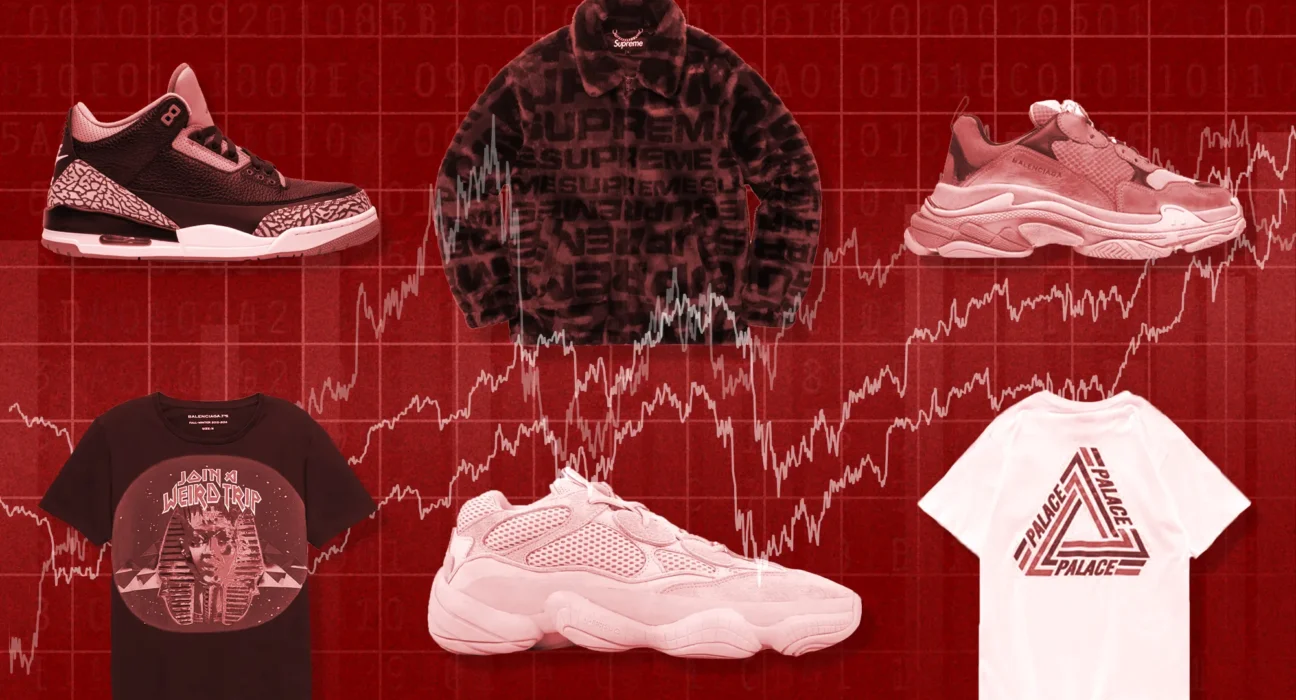Corporate Appropriation’ Overtakes Streetwear in Luxury Resale

The report found that shoppers are trading in women’s sneakers for ballet flats, mid-height heels and loafers. Similarly, the popularity of brands traditionally grouped in the “streetwear” category is waning: Supreme took a 25% dive in sales, while Off-White clocked a 34% dip year-over-year.

Noelle Sciacca, associate director of fashion and strategic partnerships, attributed this decline to the death of Virgil Abloh and Kanye West’s fall from public favor, as they were both “key personalities behind the movement.” As she put it, in a statement: “The community welcomed a shift into something new.”
“Around the same time, we saw the widespread rise of quiet luxury,” she continued. “Customers stocked their closets with neutral colored blazers, trousers and minimalist suiting separates. Over time, however, fatigue for the simple uniform began to set in, and there was an increased desire again for self expression.”

The third big trend highlighted in the report is vintage. The RealReal found that shoppers are searching for older pieces from Issey Miyake, John Galliano, Vivienne Westwood and Tom Ford’s Gucci on the platform more than ever before. Labels like Claude Montana (who died in February 2024), Courrèges and Romeo Gigli saw spikes in interest, too. These harder-to-find items offer customers a way to show their distinguished taste in an epoch of micro-trends.
The Reseller Streetwear Market: A Dynamic Landscape
The reseller streetwear market has evolved into a bustling and dynamic sector within the fashion industry. Driven by a blend of scarcity, hype, and exclusivity, this market attracts a diverse audience of enthusiasts, collectors, and investors eager to capitalize on the latest trends.
At its core, the streetwear reselling market thrives on the concept of limited-edition releases. Brands like Supreme, Off-White, and Yeezy generate immense buzz by dropping products in small quantities. This scarcity creates a sense of urgency among consumers, leading to rapid sellouts and heightened demand. Resellers, often equipped with advanced tools and strategies, swoop in to purchase these items, only to turn around and sell them at a premium.
The allure of reselling is not just about profit; it also stems from the cultural capital associated with owning rare items. Streetwear has transcended its origins as casual, rebellious attire to become a symbol of status and identity. For many, owning a piece of this culture is as valuable as the financial gain from reselling it.
Technology plays a crucial role in this market. Automated bots and sophisticated online tracking systems help resellers stay ahead of restocks and new releases. Social media platforms also amplify the hype, with influencers and celebrities often showcasing these coveted items, further driving their desirability and resale value.
However, the market is not without its challenges. As the resale ecosystem grows, so does scrutiny. Issues of authenticity, pricing ethics, and the environmental impact of fast fashion come under increasing scrutiny. Consumers and resellers alike must navigate these complexities while balancing their passion for streetwear with broader societal concerns.

In conclusion, the reseller streetwear market is a vibrant and evolving space, fueled by exclusivity and cultural significance. As it continues to grow, it will be essential for participants to stay informed and navigate the challenges that come with this high-stakes game of fashion.









